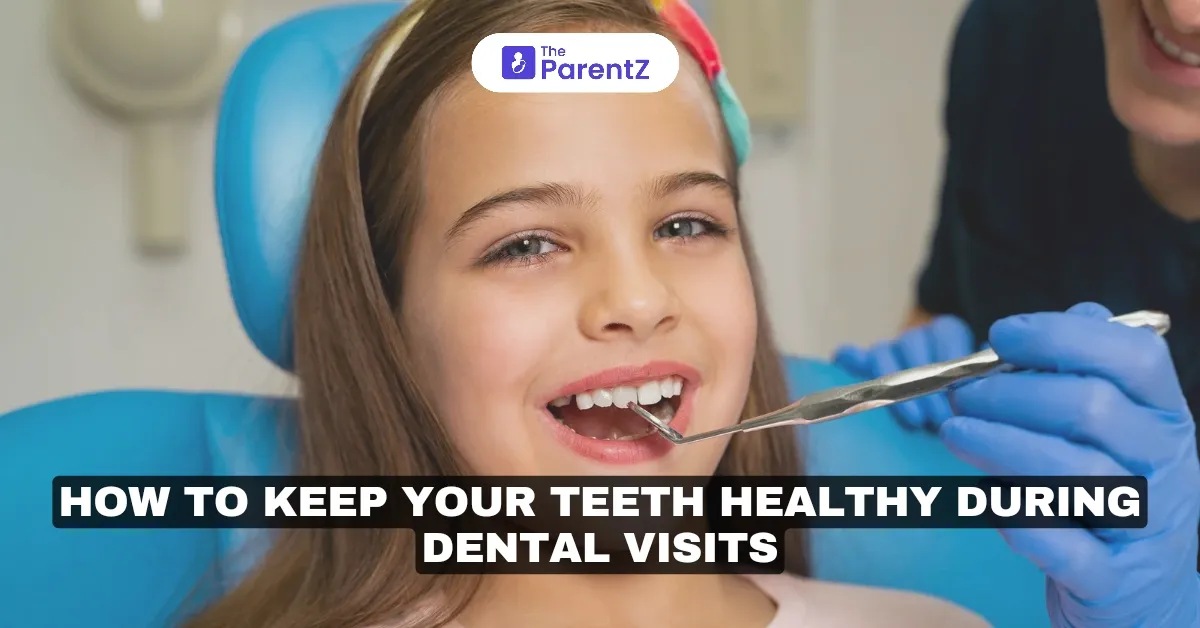Dental visits are essential for maintaining a healthy smile, but did you know they’re also a great opportunity to boost the strength of your teeth? A visit to the dentist isn’t just about cleaning or fixing, It’s about learning how to protect your teeth for life.
Tips for keeping teeth strong
Here’s how you can ensure your teeth stay strong during and after dental visits, with tips for both adults and kids.
1. Use the Visit as a Learning Opportunity
Your dentist is a goldmine of information, so don’t hesitate to ask questions about your oral health. During the visit:
• Ask About Your Brushing Technique: Incorrect brushing can harm enamel. Ask for a demonstration of the correct method.
• Learn About Your Teeth’s Needs: The dentist may notice if you need more fluoride, dietary changes, or adjustments to your dental routine.
• Flossing Guidance: If you struggle with flossing, ask for tips or alternatives like interdental brushes.
2. Take Advantage of Professional Fluoride Treatments
Fluoride is a mineral that strengthens tooth enamel and helps prevent decay. Many dental clinics offer fluoride treatments during checkups, which can make your teeth more resistant to cavities.
• For Kids: Pediatric dentists often apply fluoride in fun flavors like bubblegum or strawberry, making it a kid-friendly experience.
• For Adults: Don’t skip fluoride treatments! They’re just as effective for grown-ups, especially if you’re prone to cavities.
3. Stick to the Basics: Brush and Floss Regularly
Strong teeth start at home. Before and after your dental visit, make sure you’re:
• Brushing Twice Daily: Use a fluoride toothpaste and a soft-bristled brush to protect enamel.
• Flossing Daily: Flossing removes food particles and plaque between teeth that brushing misses.
If your dentist recommends specific products like an electric toothbrush or water flosser, incorporate them into your routine.
4. Discuss Diet and Nutrition
Your diet has a huge impact on your dental health. During your visit, ask your dentist for advice on foods that strengthen teeth.
• To Eat More Of:
- Dairy products (milk, cheese, yogurt) are high in calcium.
- Crunchy fruits and veggies (apples, carrots) naturally clean teeth and stimulate saliva.
- Nuts and seeds provide essential nutrients like phosphorus.
- Water with fluoride strengthens enamel.
• To Avoid:
- Sugary drinks and snacks.
- Acidic foods that can weaken enamel, like soda or citrus fruits (in excess).
5. Don’t Skip X-Rays
X-rays help dentists spot problems like cavities or bone loss that aren’t visible to the naked eye. Early detection can prevent minor issues from turning into major ones, saving your teeth from unnecessary stress.
6. Get Sealants for Extra Protection
If your dentist recommends dental sealants, especially for kids, don’t hesitate. Sealants are a thin, protective coating applied to the chewing surfaces of molars. They prevent food particles from getting trapped and causing decay.
• Who Should Get Them: Sealants are ideal for kids and teens but can also benefit adults who are cavity-prone.
7. Address Sensitivity Immediately
If your teeth feel sensitive during the visit, let your dentist know. Sensitivity could indicate:
• Weak enamel.
• Gum recession.
• Early signs of cavities or grinding.
Your dentist might recommend a desensitizing toothpaste or other treatments to help.
8. Rinse With a Dentist-Approved Mouthwash
Using a mouthwash that contains fluoride or antibacterial agents can complement your brushing and flossing routine. Ask your dentist for recommendations tailored to your needs.
9. Don’t Skip Follow-Up Appointments
Dental visits aren’t a one-and-done deal. Regular checkups every six months ensure your teeth stay strong and healthy. Skipping appointments could mean:
• Missing early signs of decay or gum issues.
• Accumulating plaque that weakens enamel over time.
10. Post-Visit Care Tips
After your dental appointment, follow these simple tips to maintain the strength of your teeth:
• Avoid Acidic Foods for a Few Hours: Especially after a fluoride treatment, give the enamel time to absorb the minerals.
• Stay Hydrated: Drinking water helps flush out bacteria and keeps your mouth clean.
• Stick to the Dentist’s Advice: If your dentist recommends specific treatments or products, use them consistently.
Why Strong Teeth Matter
Strong teeth aren’t just about aesthetics—they’re essential for your overall health. Weak enamel can lead to:
• Cavities.
• Gum disease.
• Tooth loss.
The stronger your teeth, the less likely you are to face dental emergencies or expensive treatments in the future.
A Note from Your Dentist
Dear Patients,
Your smile is an investment, and taking care of your teeth doesn’t end at the clinic. By practicing good oral hygiene, eating the right foods, and following your dentist’s advice, you can ensure your teeth stay strong for life. Remember, dental visits aren’t scary—they’re the best defense against problems you don’t even know are brewing.
Stay committed to your smile, and it’ll stay committed to you!
Sincerely,
A Dentist Who Believes Every Strong Smile Starts With Teamwork





Be the first one to comment on this story.